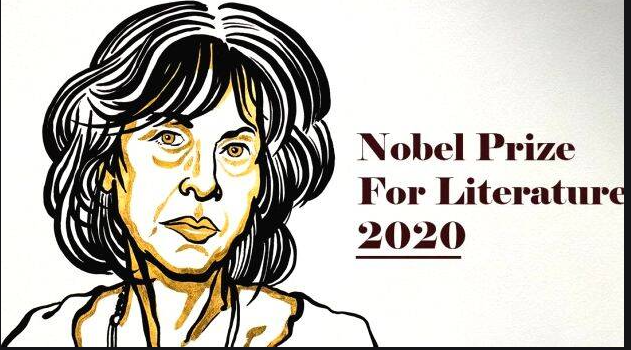November 03, 2020
Spotlight on Louise Glück – Nobel Prize Winner in Literature
“Writing is a kind of revenge against circumstance too: bad luck, loss, pain. If you make something out of it, then you’ve no longer been bested by these events.” – Louise Glück

The Nobel Prize in Literature was awarded to Louise Glück (pronounced Glick) on October 8, 2020 “for her unmistakable poetic voice that with austere beauty makes individual existence universal.”
Louise Glück is an American poet who was born in New York City in 1943. She presently lives in Cambridge, Massachusetts where she is a professor of English at Yale University, New Haven, Connecticut. In addition to The Nobel Prize, she has received several prestigious awards, among them the Pulitzer Prize (1993) and the National Book Award (2014). She has published twelve collections of poetry, some volumes of essays on poetry and is considered by many to be one of America’s most talented contemporary poets. Much of her poetry is known for its technical precision, sensitivity, and insight into loneliness, family relationships, divorce, and death while her inspiration has been taken from myths and classical motifs, which are present in most of her works.
Louise has credited the influence of fellow poets Leonie Adams and Stanley Kunitz in helping her “find her own voice” as well as her literary heroes John Berryman and William Blake.
In an exclusive interview in 2012, Louise explains how her passion for reading turned into a passion for writing:
We’ve read that you’ve been drawn to poetry at a fairly young age and that you felt almost a sense of companionship in the poetry of William Blake and others.
Louise Glück: I learned to read very early, very young, and my father was fond of writing doggerel verses. So, the children, the two of us, we started writing books very early. He would print them out and we would illustrate them, and many times the text was in verse. But I started reading poems that I found. I remember my grandmother, who wasn’t a bookish woman, had a tiny little anthology — it was physically a small object, as I remember — of “Beloved Poems,” or some sort of comprehensive title of that kind. And I remember reading Blake’s “Little Black Boy,” and I remember reading the song from Cymbeline, “Fear No More the Heat of the Sun.” And I must have been five years old — four years old — little. But I heard those poems. I often didn’t know — with Blake’s poem I knew, obviously, nothing of the historical background of the poem — but the cry from the heart to my ear, that I could hear.
I remember, a little later than that, having in my mind a sort of private crucial competition for the greatest poem ever written, of course based on the sample I had then read. And the finalists were Blake’s “Little Black Boy” and “Swanee River.” And if you think about it, they’re tonally very alike. The same solitary voice raised in lament, essentially, and grief. That tone reached me very quickly. The songs from the plays of Shakespeare were very different. Many times, I didn’t understand some of the words and had no idea what need they filled in the play. I don’t even think I knew that they were parts of plays. But I read them hypnotically. Even after I had memorized them, I kept reading them. As I got older, I read constantly. Much fiction, which I still read to divert myself to be happy. When I want to be happy, I read a novel. But in my early teens and mid-teens, I would just read, deep into the night, all those poets who were commonly anthologized.
I didn’t know what you did to become a writer with a book. But I wrote poems from the time I was in my early, early teens. I submitted my first book when I was 13 or 14. It was, of course, sent back. And poems to magazines. Yet I persisted.
What advice would you give to a young person who wants to write poetry?
Louise Glück: The same that anyone would say: Read poetry. Read. Keep yourself open to alternatives. But I think the problem with the question is that really it depends on the person. So, your answer will be, to some extent based on your perception of that person’s capacity. And hunger. And psychology. Some people are already reading so much that to tell them to read more, their voices will be drowned……so you remind them to live in the world. And I think your poems – the ones that are yours and not skillful clones of existing poems – will come about through having lived the life that most closely enacts your own passions.
Publishers Weekly magazine made this statement: Glück’s current publisher is Farrar, Straus and Giroux, and Jonathan Galassi, FSG president and publisher as well as Glück’s editor, said the poet is a deserving winner. “Her work is deeply poetic and literary, but also deeply sensical and direct. It’s like you hear your inner voice when you read her.” FSG is going back to press on all her books, and Galassi also announced that a new collection of poetry, Winter Recipes from the Collective, is due to be released sometime next year.







